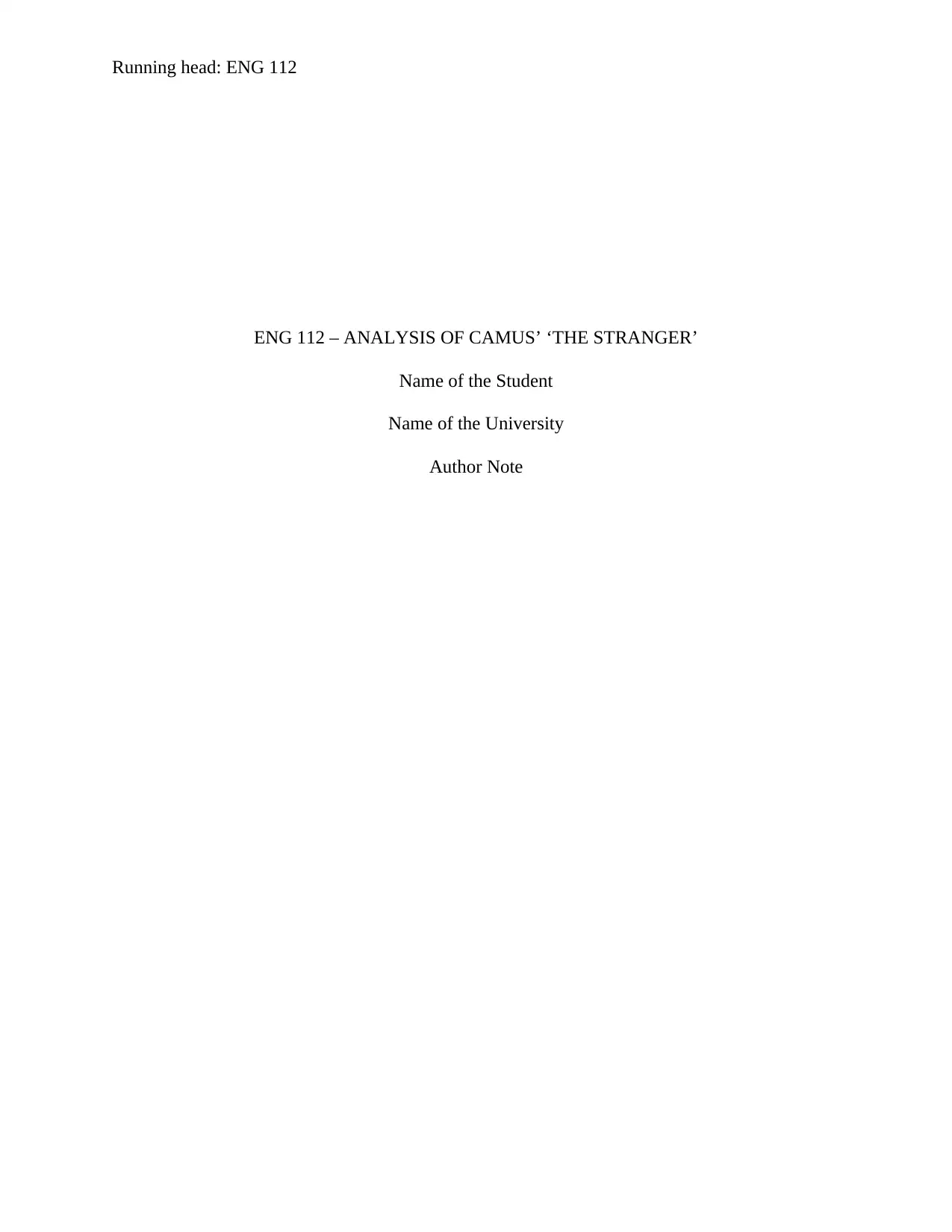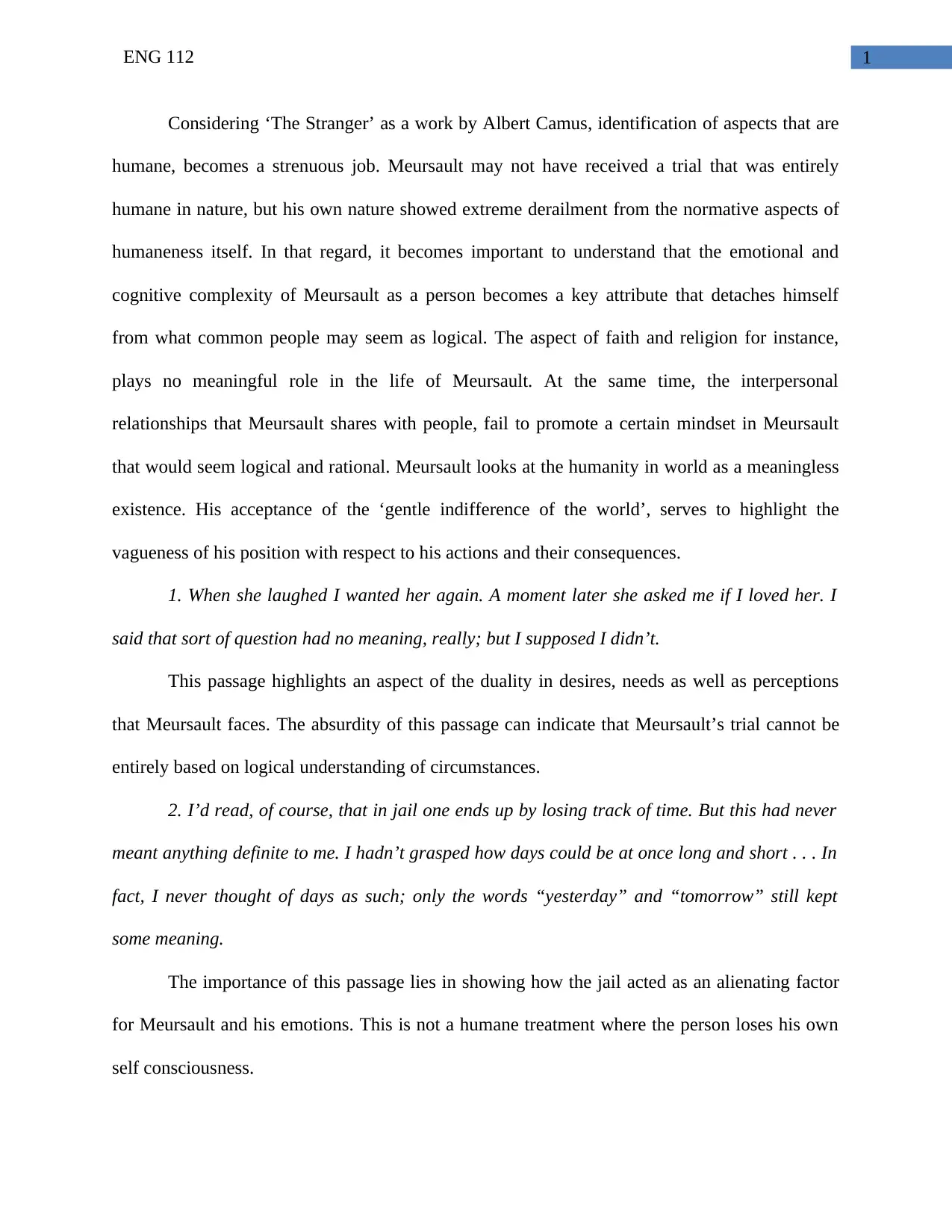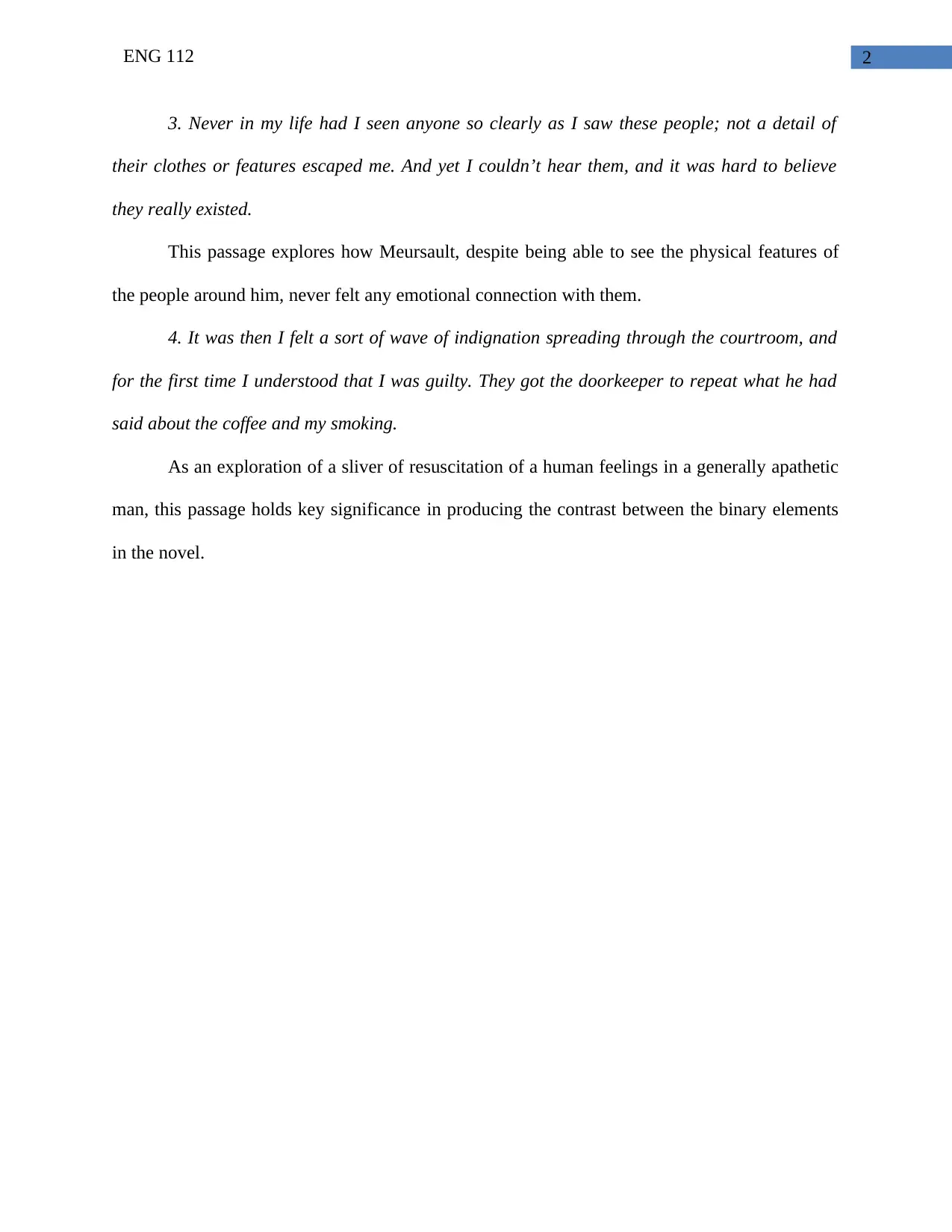ENG 112 - Analysis of Meursault's Character in Camus' 'The Stranger'
VerifiedAdded on 2022/08/11
|3
|564
|10
Homework Assignment
AI Summary
This assignment analyzes Albert Camus' novel, 'The Stranger,' focusing on the character of Meursault and his detachment from conventional human emotions and societal norms. The analysis examines Meursault's indifference to faith, interpersonal relationships, and the consequences of his actions, highlighting his acceptance of the world's indifference. The document presents four key passages from the novel to support the analysis, illustrating Meursault's duality of desires, the alienating effects of his imprisonment, his lack of emotional connection with others, and a moment of potential emotional awakening. The analysis emphasizes Meursault's deviation from normative human behavior and explores the complexities of his character, which sets him apart from the logical expectations of society. Despite the assignment brief's requirements not being met, the document provides a valuable analysis of key themes in the novel.
1 out of 3





![[object Object]](/_next/static/media/star-bottom.7253800d.svg)